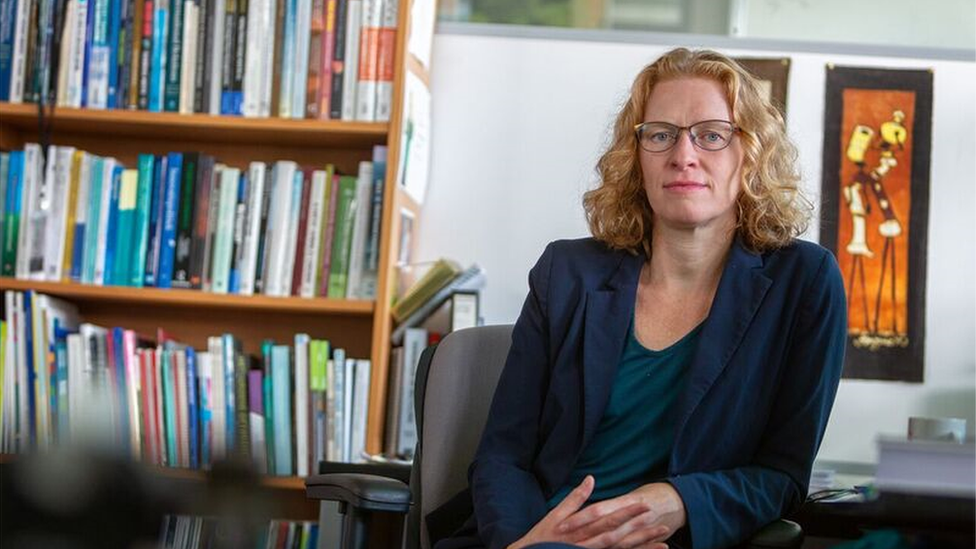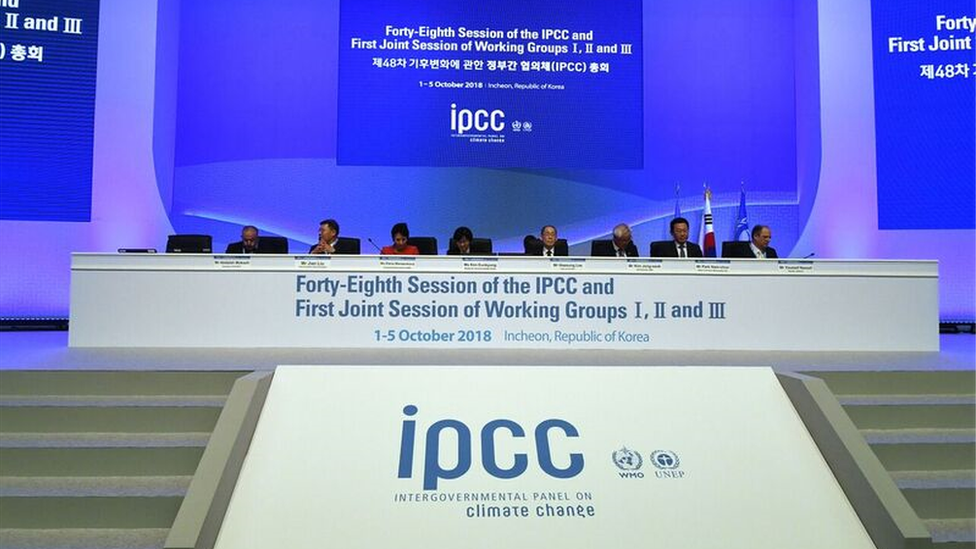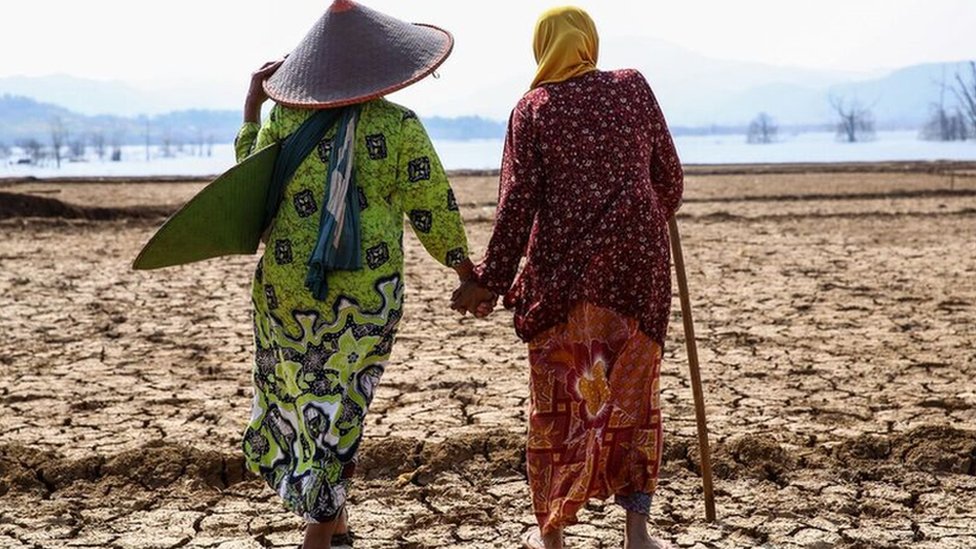'Reasons to be hopeful' on 1.5C global temperature target
- Published

Dutch scientist Dr Heleen de Coninck is one of the co-ordinating lead authors of the forthcoming Intergovernmental Panel on Climate Change (IPCC) special report on 1.5C which will be released next Monday in South Korea. Speaking to the BBC before the start of the negotiations in Incheon, she explained what her role involves and why, despite the enormous climate challenge facing the world, she believes there are some hopeful signs.
How did you become an IPCC scientist and what do you do?
You become one when you are nominated by your own government. So in my case I was nominated by the Netherlands government and the European Commission. There is a selection process with the IPCC because they want a certain mix of nationalities and science backgrounds, and they want different disciplines represented.
It's basically added responsibility to your normal job of teaching or doing research or work in an NGO or in a company
You read all of the scientific literature. You discuss with your other authors how you like to represent the literature in a chapter and you write the chapter. The chapters are sent out to other experts for comments, and you have to answer all those.
In the last round we had 4,400 comments on the chapter that I'm in, and we have to respond to every individual. That's a lot of work!
And you do all this and you don't get paid for it?
For most of us, our institutions think it's important that's why we do this work, so my university in the Netherlands helped with getting other people to do part of my teaching for instance. But yes it's a bit of challenge.
Why does it take so long?
We've actually put this report together at record speed! This report took a year and a half between when the authors first met to this meeting in Korea.

Scientists and government representatives are meeting in South Korea to hammer out a special report on 1.5C
What you will be doing in Korea and why is it important?
We have produced a short overall summary of our report called the Summary for Policymakers - this 20 page document is a distillation of 6,000 research papers! The government representatives who we will meet with in Korea, will want to change some things and our role is to make sure that the changes they are making are consistent with the underlying report and that they do reflect really what the science is saying about behavioural change or innovation or everything related to 1.5C
So are the governments the boss when it comes to your report?
Yes and no. The governments approve an outline, and we have to follow those bullet points. We, as authors however determine what we write in the report and they review it and we take their comments very seriously as they improve the quality of the final product.
In Korea, we will go through the short Summary for Policymakers, line by line. The summary is negotiated by the governments, we write a draft but they actually determine the final outcome of that, unless it is not consistent with the underlying report, then we as authors should speak up.
Many people think that perhaps we can tackle climate change with technology - do you think that's something that will be needed in the future?
If we go on the way the way we are living at the moment with our high-energy usage, high consumption lifestyles, it is hard to stay consistent with the 1.5C temperature scenarios, that's very clear.
So we will need all kinds of changes, and technological changes are part of that.

If temperatures rise beyond 1.5C many parts of the developing world will be hit very hard
One thing that is in the news is negative emissions technology, at some point we should not only prevent the emissions of greenhouse gases to the atmosphere, we may have to remove these gases from the atmosphere. That's fairly new technology, so we are not there yet.
Can we keep temperatures down if everyone goes vegan? Can we do it with lifestyle changes.
It won't be enough by itself. Agriculture is a huge part of global emissions, not only through the farts and burps of cattle but also through the land use change to grow food for those cattle - lots of the soya produced in countries with high deforestation rates is for feeding animals for meat and dairy.
If you go completely vegan you would still have a lot of emissions from energy use and transport and electricity production. We don't have that thought experiment in the report but my hunch would be that it would still be enough to go past 1.5C - but going vegan would help a lot!
Some people might argue that keeping temperatures below 1.5C is all down to governments and has nothing to do with me?
There's always an interaction between what individuals do and what governments do and private companies do - governments can make policies that influence individuals, you can see that very clearly if you compare emissions per person in the United States with Europe - countries with similar levels of income and development but very different lifestyles in terms of car ownership and even diet. Lifestyle matters!
How will this report impact the lives of younger people? What do you think would be the potential impact on young people?
A report of course does not change the world, but if, as a consequence of this governments agreed to limit the global temperature rise to 1.5C that would mean a completely different way of transporting ourselves in rich and poor countries, it would mean a completely different way of using energy in households, of generating electricity, how we make our products, how much plastic would be used, and how we feed ourselves.
The decisions we make now about whether we let 1.5 or 2 degrees or more happen will change the world enormously. But our lives when keeping it below 1.5C with projected population rise and economic growth will also look differently.
The lives of people will never be the same again either way, but we can influence which future we end up with.
Are there reasons to be optimistic?
Personally I am hopeful. We're seeing some countries making serious plans to be consistent with 1.5C, we are seeing costs of renewable energies drop. Many people are adopting low-emission lifestyles, and for instance don't fly anymore. Even the costs of some negative emission technologies are dropping so we are seeing some hopeful signs.
The IPCC also tries to be more solution-oriented rather than only flagging and analysing problems.
There's really good reasons to really start working now! I'm not sure about optimism, but I think that losing hope is never a good idea.